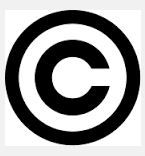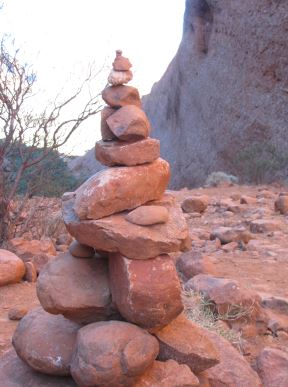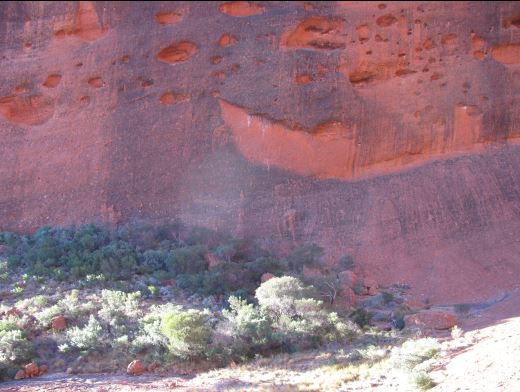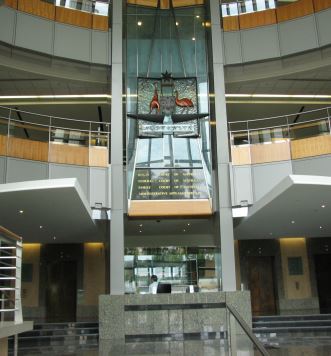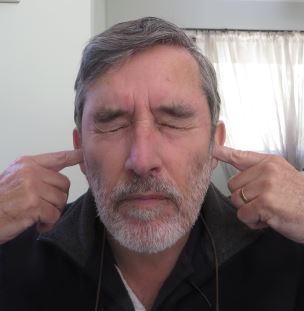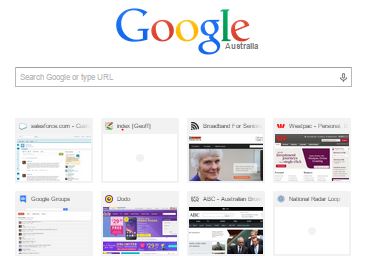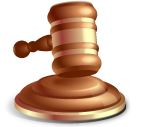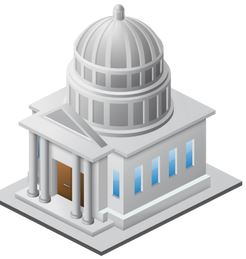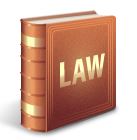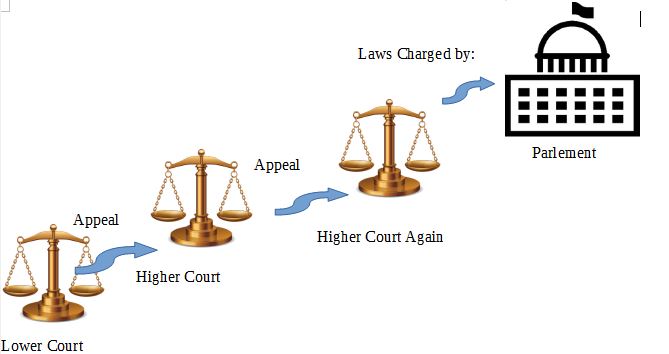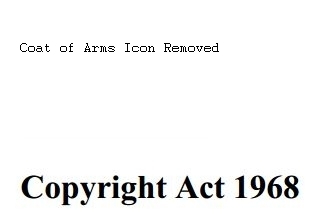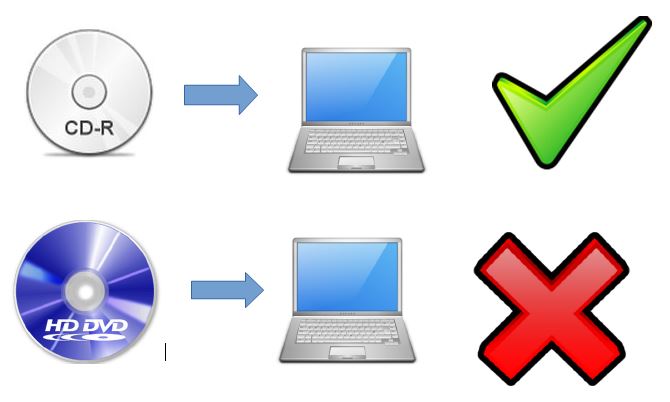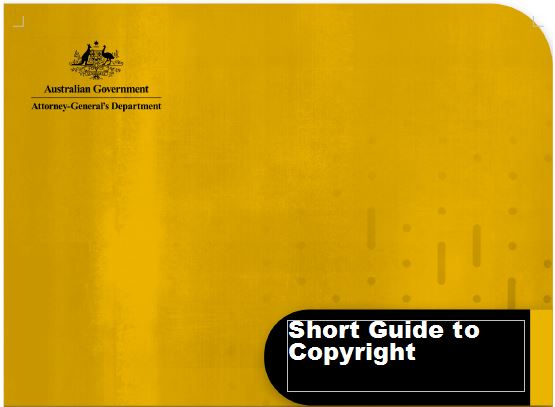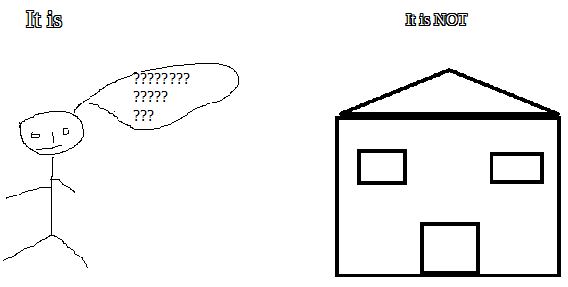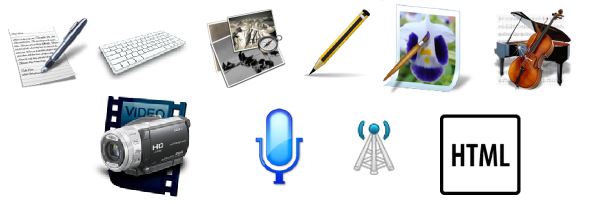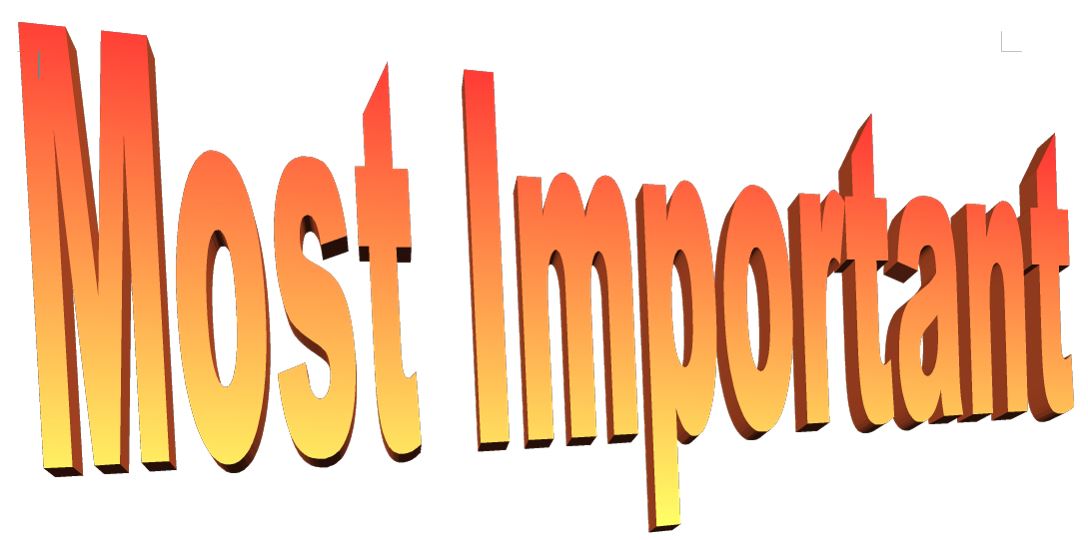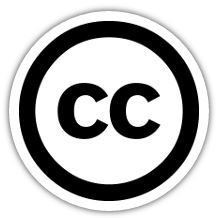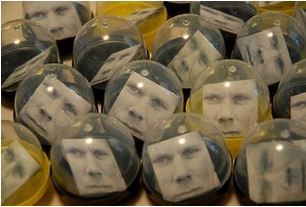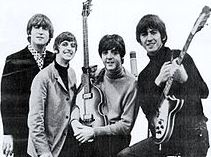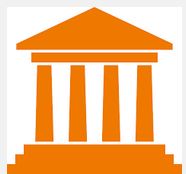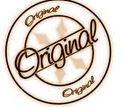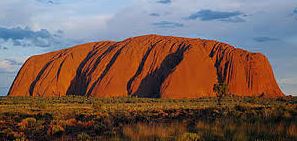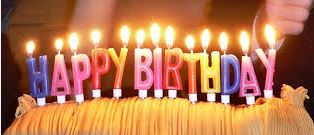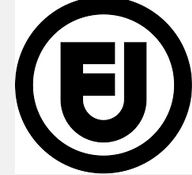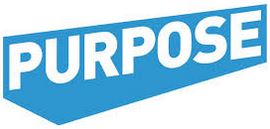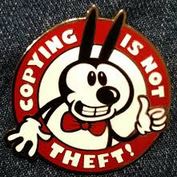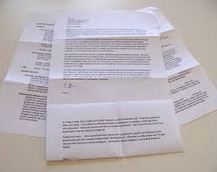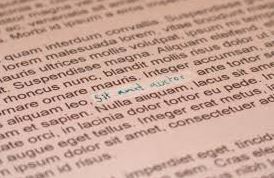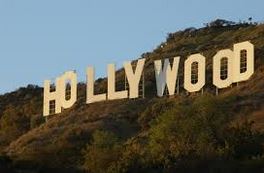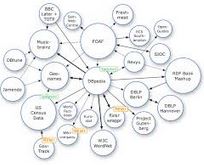Table of Contents
Getting Copyright Right
Notes for a Webinar that was conducted on August 14 @ 1:00 pm - 2:00 pm
NOTE: This Webinar is being recorded and the recording will be available on the BFS Web Page www.bfseniors.com.au
Or directly from here
Or on Youtube from this link:
https://www.youtube.com/watch?v=3f1jr-2OCZ0
And Also hopefully on Youtube
If you wish to contact me re any of this material my email address is: geoffreykgreig@gmail.com
“Copying is the engine of civilization: culture is behavior duplicated” David Owen SMITHSONIAN MAGAZINE
http://www.smithsonianmag.com/history/making-copies-2242822/
Introduction and Disclaimers
- - Laws are complicated, I will be mainly be presenting generalizations, but these have exceptions and ther are exceptions to those exceptions, so..
- - Seek own legal advise (Good Legal advise will also ask you to seek your own legal advise)
- - Although I have taken a lot of care producing this material, because of the above and many other factors, I take no responsibility for its contents. Any decisionns you make based on this material is completely yours and yours only
- - Any opinions are mine and not who I am contacted to, ie ALA
- - I am NOT a Lawyer and have no legal qualifications
- - I am a professional software author (made a living from it) and have have articles published in international magazines, so a copyright owner
- - I only know what I know, some of what I don't know and all of what I dont know that I don't know
- - I will be distinguishing between what can be done with technology and the law
- - Australian laws on copyright are some of the most strict in world so I will compare them with those of the US
- - Hope to present most of this via a series of stories, because most people remember stories better than they remember facts
- - Because of Copyright Law and hopefully what will become known as we progress, this presentation will be a combination of News and Satire rather than Education
- - Most of what is written about Copyright is from the copyright holders perspective, I will be presenting this from the internet content consumers perspective
Purpose of the session
To give you sufficient knowledge of copyright, so that you can use the internet with confidence and safety.
Ignorance of the law in not a defense, in legal matters
https://en.wikipedia.org/wiki/Ignorantia_juris_non_excusat
Later I will talk about the purpose of Copyright, but as we proceed, I would like you to think about the motivation for Copyright
What could be covered
This is shown on the index at the top right. As we will not have time to cover everything we will initally only cover these items:
And if we have time them cover anything else based on your requests.
Information is Power, What is information, How does it work?
Demonstrate information by giving some and asking it to be returned
Here is some information: “When I wake up and the sun is shining, the sky is blue and the grass is green and I say, what more can I ask for”
Now that I have given you that information, please return it to me. Can you? Even if you do who has it? Did I give you the information or just a copy of it?
Non physical information can not be returned from the receiver to the the giver like physical items can.
I introduce this as it is important that you understand this concept.
It is NOT possible to copyright information. We will see this as we proceed.
What is Copyright?
Ask to write on whiteboard or in chat
Who recorded a TV program via ther Video Cassette Recorder (VCR) prior to 2006?
Who uses new Tab?
Technically if you can read, see or hear somthing on the internet you can copy it.
Technically you or your device has already copied it. See this
Ther is much on the internet that you can copy even without reading, seeing or hearing it. Eg. When you receive email.
You are copying right now, because you are watching this webinar. Your computer copies many thing that you may not be aware of. Eg screen shots of web pages or the time and date.
So that is the technical side of things but what about the “LAW”?
Copyright is a legal thing. So how does the legal system work?
How does the legal system work?
Common Law v's Statute
Common law or Case law, is previous court decisions made by judges. Statute are legislation that has been passed through Parliament.
Most law is now Statute. Copyright is Statute Law. ie In Australia, The Copyright Act 1968 http://www.austlii.edu.au/au/legis/cth/consol_act/ca1968133/
Civil v's Criminal
Civil law is disputes between individuals and or organizations, in which compensation is awarded to the victim, is stated by private party(s)
To obtain compensation for copyright infringement the copyright owner has to sue the copyright infringer in a civil action
Criminal law deals with crime and the legal punishment of criminal offenses, is started by the Government.
Some copyright law can be criminal and so involve fines and or prison terms. (See later)
Progress through court systems (appeals)
In different jurisdictions (places, states) there are different levels of court. eg. Magistrates, District, Supreme, and a decision by one court can be overturned by a higher court. Even after the highest level of court, parliaments can still change laws.
How does Copyright work?
Is the BFS web site copyright? Look at it: http://bfseniors.com.au/
Can you copy any part and or all of the BFS web site?
Is this site copyright: http://www.ford.com.au/ ?
Can you copy any part and or all of the Ford site?
Is ther a link from the Ford site about ther copyright?
My Definition of Copyright: The exclusive monopolistic rights given to the copyright holder for information encapsulated in medium
I wanted to show the first page of the Copyright Act here but was unsure about the copyright of the Australian Coat of Arms which appears on that page. As I have found it extremely difficult to determine its copyright status and it appears other Acts come it to play I have decided to remove the Coat of Arms from the above image.
The Copyright Act 1968 http://www.austlii.edu.au/au/legis/cth/consol_act/ca1968133/ is a 646 page document of legal mumbo jumbo that only a masochist would read. The word Internet is only contained 3 times in it and it is not defined.
However the word “thing” is often used in the act which may be referring to the internet.
It was initially written before the internet ever existed which is evidenced in some actions it dictates have to be done. Eg destroy all copies.
It has had multiple amendments, but theses appear to have trouble in keeping up with the speed of technological change. Eg Within certain constraints it allows copying from CD to other media and Video Cassette to Other media, but does not allow copying of DVD's to other media.
For a less complicated read of copyright you could read the Australian Government Attorney Generals Department:
https://www.ag.gov.au/RightsAndProtections/Documents/ShortGuidetoCopyright-October2012.doc.
However this is only some peoples interpretation of the Act
NOTE: information per say can not be copyrighted. It has to written, recorded, captured, etc.
Copyright is not a tangible thing. It is a concept that has legal backing. It is therefore different from physical property, in that it is NOT scarce. You can not see, feel, hear or smell copyright, but because of the law you can own it. It is part of an area of Law called Intellectual Property, that some also describe as Intellectual Monopoly, which in addition to copyright includes, patents, trade marks, designs, circuit layouts and plant breeder's rights.
How is copyright protection obtained?
You write, photograph, draw, paint, perform, film, record, broadcast or program something ORIGINAL (your own intellectual effort) within a medium. That medium can be the internet.
Ther is no requirement or way to register copyright in Australia. The (C) symbol is NOT required or any wording to say that the material is copyright.
From the Attorney-General’s Department web site article “Short Guide to Copyright” Pg 6. https://www.ag.gov.au/RightsAndProtections/Documents/ShortGuidetoCopyright-October2012.doc.
“The Attorney-General’s Department is aware of Australian-operated websites purporting to offer copyright protection or Australian ‘registration’ of copyright for payment of a fee. No such registration or other formality is necessary for copyright protection in Australia, and these websites have no authority or capacity to guarantee copyright ‘protection’.”
Australian law on this is slightly different in this respect than the US law. In the US you can not bring an action for copyright infringement (explained later) unless the copyright is registered with the US Library of Congress. Ther exists Bilateral agreements between Australia and other countries, and Australia is a party to the international copyright conventions but the laws of the applicable country, apply.
Questions about what we have covered so far
Can information be copyrighted?
Is copyright law Civil of criminal?
Is the BFS web site (http://bfseniors.com.au/) copyright?
Are all web sites copyright?
Can you register copyright in Australia?
Is everything im saying in this webinar copyright?
Can copyright material be legally copied?
This is the most misunderstood part of Copyright law.
Often you will hear said “you can not copy it because its copyright”
The fact that somthing is copyright gives no indication as to if it can or can or can not be copied.
Other than “fair use” (explained later) and other exceptions, the copyright owner determines if copyright material can or can not be copied.
Generally copyright owners do NOT disclose if the material on web sites can be copied. Notices often only say the material is copyright or they have a term that most people dont understand “all rights reserved”, which is basically is an obsolete term that used to mean the copyright owner reserves the right to decide if how, when and where ther material can be copied. https://en.wikipedia.org/wiki/All_rights_reserved
If a web page has no indication if you can copy the material on the page, you then need to contact the owner of the material to get ther permission before copying it.
IF IN DOUBT IT IS BEST TO ASK
Note: Just because a web site sais that it has permission to use copyright material does not mean you have permission.
Creative Commons
Somtimes is can be difficult to find or contact the copyright owner of material. Because of this Creative Commons was established. It reverses the concept of “all rights reserved” where you have to ask permission, to specifying the permissions up front. This is called creative commons. Permissions in advance concept as opposed to all rights reserved.
The owner of the material decides how they wish to allow ther material to be copied and shared. Creative commons has a a number of ways that the owner can do this. It is done with creative commons licences. http://creativecommons.org.au/
Ther are 6 creative commons licenses such that the copyright owner chooses under what circumstances they wish to let members of the public or organisations to use and copy ther material. The Australian Creative commons site has documents and tools that allows you to see the different licences and how they operate.
http://creativecommons.org.au/content/licensing-flowchart.pdf and http://creativecommons.org/choose/
NOTE: Because of the different types of creative commons licences do not assume you can use material covered by creative commons licence. Check to see which of the 6 licences it is, so under what circumstances you can use the material.
NOTE2: Often web sites have the wording “Except where otherwise noted, content on this site is licensed under a Creative Commons Attribution 4.0 International license.” Watch out for the exceptions
Because it is so easy to copy material on the internet, somtimes NON creative commons material shows on web sites as being creative commons. I do not no where that leaves you as a user of the material. This is all I have been able to find: https://wiki.creativecommons.org/wiki/Frequently_Asked_Questions#What_happens_if_someone_applies_a_Creative_Commons_license_to_my_work_without_my_knowledge_or_authorization.3F
Who is the copyright owner?
Initially, generally the original creator of the material or if the that person is employed, the creators employer.
But because copyright is a commodity (somthing that can be bought or sold or willed) the ownership can be transferred to other people or organisations.
Eg The Michael Jackson Estate owns the copyright of some of the original Beatles music.
https://en.wikipedia.org/wiki/Sony/ATV_Music_Publishing
Interesting that Michel Jackson allow Weird Al Yankovic to parody “Im Bad” with “Im Fat”.
http://www.11points.com/Music/11_Artists_Who_Wouldn't_Give_Weird_Al_Permission_For_a_Parody
Moral Rights
Because copyright can be sold the Copyright Act also contains moral rights. That is the rights of original creation or authorship of material. These can NOT be sold
How long does copyright last?
It depends on the material involved and some other factors. But basically 70 years or in some cases 70 years after the death of the author. If the material is unpublished, it lasts indefiantly.
http://www.nla.gov.au/how-long-does-copyright-last
https://en.wikipedia.org/wiki/File:Elton_john-rocket_man-23_sec.ogg
What about Government Copyright?
In Australia all commonwealth government material is copyright.
However see this: https://www.ag.gov.au/RightsAndProtections/IntellectualProperty/Pages/LicensinganduseofCommonwealthmaterial.aspx
Each state should check ther own status eg Queensland: https://www.qld.gov.au/legal/copyright/
In the US government material is NOT copyright See https://en.wikipedia.org/wiki/Copyright_status_of_work_by_the_U.S._government
So What is "Original"
This is for the courts to decide in a Civil case. eg. Kookaburra v Down Under
Also some have argued that nothing is original. https://www.kent.ac.uk/law/ip/resources/ip_dissertations/2000-01/hoare.rtf
Technical Original
Many years ago, well before the common use of the internet, I did some contract work for a TAFE college for which I faxed them an invoice. I was later asked to send then the “origional” of the invoice. I asked if by that, they meant the original printed invoice, to which they said yes. I told then they had the original printed invoice because I had faxed it from my computer via a fax/modem. I had composed the invoice on my computer and selected the fax/modem as the printer driver and selected print. The printer driver asked me the fax number that I entered and so the original print came out on the TAFE colleges fax machine. They could not understand that concept so ended up having to print a copy of the invoice which included the text “copy of original”.
Technically in the digital world originals no longer exist as they are typically destroyed when the computer is switched off or the Randon Access Memory (RAM) is over written. If a document, sound recording, photo, drawing, transmission, or what ever is saved on a computer , it is technically a copy of what is RAM that is saved, NOT the original.
The copyright Act does not define the word “original” so it would default to the common use of the word as defined in a dictionary.
The Google Definitions are:
adjective 1. present or existing from the beginning; first or earliest. 2. created personally by a particular artist, writer, musician, etc.; not a copy. noun 1. the earliest form of something, from which copies may be made. 2. an eccentric or unusual person.
Other than the last definition, that could apply to me, my argument that technically nothing original, exists digitally, appears to hold
Perhaps no one has ever argued such in respect to copyright law, considering how relatively new digital only information is.
It appears that the case law has defined the word original completely differently from the common use of the word
How little can be subject to copyright?
20 words. The happy Birthday song https://en.wikipedia.org/wiki/Happy_Birthday_to_You
Or 16 words, if happy birthday was a derivative work, bases on the song “Good Morning to All”
But not 2 words, “app store”.
Exceptions and Fair Use
Ther are a number of exceptions from the general provisions of copyright rights. One is fair dealings. That is under theses circumstances a copyright work, sound recording, film or broadcast will not amount to an infringement of copyright if done for the following purposes:
research or study, criticism or review, reporting of news, giving of professional advice by a lawyer or a patent or trade marks attorney or parody and satire.
It can be difficult to determine if the circumstances of fair use apply. Like Adult Learning Australia is not a Educational Institution and you are not enrolled in a course, so it may be difficult from me to prove that I copied material for this webinar for “study” purposes. Thats why at the beginning I said this webinar is news and satire rather than education.
Some other Exceptions are Format Shifting and time shifting, for Private copying. This is what now allows you to record TV, but only came in to force in about 1996.
For more exceptions see Page 16 of the Attorneys General Department “Short Guide to Copyright” https://www.ag.gov.au/RightsAndProtections/Documents/ShortGuidetoCopyright-October2012.doc.
More review questions up to this stage
Copyright material can not be copied?
Copyright material can be copied?
Creative Commons Material can be copied?
Whoever created the material owns it?
Copyright Lasts forever?
Any Government material can be copied?
Anything put in media can be copyrighted?
So how does Copyright effect the use of the Internet?
Unless you created it, everything you experience on the internet is a copy of someone else's work.
Technically the fact that you are reading, watching or listening (experiencing) something on the internet means that you have copied it or caused it to be copied, multiple times because it exists in RAM, disk cache and in permanent storage (hard drive) on your device.
This is what technically is or can be done. Now lets compare that with the law
So are you infringing the rights of the copyright owner by using the internet?
Like all things to do with the LAW, it depends:
An argument can be put that if the owner of the copyright did not want you to see a copy of it via the internet then they should not have put it on the internet.
That by putting material on the internet it is implied that the copyright owner has allowed you to copy it, for the purpose of reading, listening or watching/experiencing it.
Or perhaps only to a limited extent.
From Apples website
“BY USING THE SITE, YOU AGREE TO THESE TERMS OF USE; IF YOU DO NOT AGREE, DO NOT USE THE SITE.”
Did you realize that you had entered into a legal agreement when you entered this webinar?
From the link when you entered this webinar“
“ENTERING A VIRTUAL CLASSROOM OF THE WEB SITE CONSTITUTES YOUR COMPLETE ACCEPTANCE OF THE TERMS AND CONDITIONS OF THIS AGREEMENT. IF YOU DO NOT AGREE TO ABIDE BY THESE TERMS, DO NOT ENTER ANY VIRTUAL CLASSROOMS. ”
one of the terms is”Any Content uploaded or transmitted to the web site may be used by Blackboard Collaborate for its own purposes which shall include, but not be limited to, providing service to you under the Agreement“
What is the purpose of Copyright?
What do you think it is?
The Australian Copyright Act, unlike some other Acts, does not state what the purpose of copyright is. The Australian Constitution, Part 5 Section 51 (xviii.) which give the commonwealth Government the right to pass laws in relation to copyright, also does not state the purpose of copyright.
http://australianpolitics.com/constitution-aus/text/complete
This may be a reason that the Australia has one of the most stringent copyright laws in the world
However the US Constitution does show the purpose for ther copyright. it being:
“To promote the Progress of Science and useful Arts, by securing for limited Times to Authors and Inventors the exclusive Right to their respective Writings and Discoveries” (Article I, Section 8, Clause 8)
However looking at the history may also give some insight as the it purpose:
A view on the history of Copyright
http://falkvinge.net/2011/02/01/history-of-copyright-part-1-black-death/
An Animated Video - Early Copyright History
Infringement NOT Theft/Piracy
Other than the exceptions, if a person or organisation in Australia copies copyright material without the copyright owners consent they have infringed copyright
Copyright infringement is NOT Theft because in law to steal somthing the owner of the item can no longer possess it. If the owner still has it, as is the case of a infringing copy being made, then it can not be called theft.
Certain vested interest groups have been successfully convincing people that copying copyright material is theft, when in reality it is NOT.
Copywrite infringement is a civil matter where it is up to the infringed to bring an action in an appropriate court. Only Governments can bring actions relative to theft. However ther are some criminal aspects relative to copyright law See See Criminal aspect of Copyright
Unfortunately the common term used for copyright infringement is Piracy, which implies theft. So it is not a good term to describe copyright infringement. It a particular court case the judge did not allow the word Piracy or theft to be used for copyright infringement.
https://en.wikipedia.org/wiki/Copyright_infringement#Terminology
A Video showing how copying is NOT theft and why- Copying = Stealing?
Speculative Invoicing
This is a story that was told to me by a person that was the editor of a camera club news letter.
The camera club received a letter from a legal firm stating that the camera club had infringed the legal firms copyright by using wording, in the clubs newsletter, to the effect that the views of the writers where not necessary views of the club. The legal firm letter went on to say that because the wording had been used without ther permission, the club had violated ther exclusive rights and that the legal firm would be taking legal action. However if the club paid them $7,000 the legal action would not be taken. The club paid the $7,000. That is now, what is termed “speculative invoicing”. My opinion is that the club was basically scammed.
Speculative Invoicing has become more common in the US and UK in the case of alleged illegal downloading.
In a recent case between iNet and the copyright owner of the movie Dallas Buyers Club this issue has been brought up in Australia
An ABC interviw about it: http://www.abc.net.au/7.30/content/2015/s4212149.htm
The judge in this case has stipulated that any letters to be sent to alleged copyright infringes will have to vetted by the judge
A follow up on this:
If you want to no more about speculative invoicing here is a Speculative Invoicing Handbook written by the web site Torrent Freak. https://torrentfreak.com/static/The-Speculative-Invoicing-Handbook.pdf
Recent Amendments to Copyright
Governments response to alleged massive copyright infringement.
Firm Studios report themselves as copyright infringers
Sometimes Google will have a notice at the bottom ther search results saying that a copyright owner has requested that the link to a site has been removed. However some of these links are to the film studios own computers. This may be just slack reporting on behalf of the film studios but it does indicate that they are creating bi-torrents to ther own movies because they may want others to download it to boost the alleged illegal downloads numbers or perhaps promote ther movie
Software Copyright
Computer software is subject to the Australian Copyright laws. The copyright act considers software to be a LITERARY work.
In the past software was physically purchased and installed on computers. The modern trend is for software to be pre-installed and downloaded the instant it is needed as in web base applications or apps on many devises including computers.
The major difference between software and other material that can be copyrighted is that most software is not in a human readable form such that it can be easeally determined if it is a copy for determining infringement.
It appears that the software industry has matured substantially compared to the Recording and Film industries as far less copyright infringement of software is reported in the press. It may also have to do with the proliferation of supposed and actual true free software.
True free software is software where the end used can do anything they like with it including modifying it and selling it. Supposed free software is software that is free of a purchase price. Its like the difference between free speech and free beer. See https://fsf.org/
Authorising an infringement
The Australian copyright law also provides for persons, authorising infringement.
In a recent court case. the Movie industry against a Large Australian Interent Service Provider (ISP) it was eventually decided that by providing an internet service, ISPs where not authorising infringement if ther users infringed the rights of copyright owners.
https://www.ashurst.com/publication-item.aspx?id_Content=8011
Also although not Australian, see the Pirate Bay
https://en.wikipedia.org/wiki/The_Pirate_Bay
And a 1 hour 20 minute documented on the Pirate Bay
linking and Embedding
This is all to new for copyright law and most of what I have read is unclear as to weather a link from a Web site to copyright material is copying, if the link is followed.
According the Australian Attorney Generals Department document “Short Guide to Copyright, Pg 12
“In the online environment, providing links to infringing material may, in some circumstances, constitute authorisation of an infringement. ”
However it does not describe the circumstances.
Technically most people no what linking is on the www. However embedding is less well known. Embedded anything on a web site could come from any other web site. Unless the end user looks at the source code of the web page and has the technical expertise to interpret the HTML (Hyper Text Markup Language) they would not be aware where the parts of the page where coming from. For example Creative Commons licence Logo below is NOT stored on this web site but is actually stored on the https://i.creativecommons.org web site

This work is licensed under a Creative Commons Attribution 4.0 International License.
It is therefore difficult for the normal use of the WWW to no where the material they are consuming is coming from
Signing/Actioning away your Copyright Rights
When you visit some web sites that allow you to create you own material, such as Facebook, Twitter and Google, as part of your acceptance of the terms and conditions, which could be that action of using the site, you most likely have given away some of your exclusive copyright rights.
To determine this you would have to carefully read the terms and conditions of use of the web site
If the web site did not have such conditions they would not be able to make you material available for the purpose you where using it. ie dissemination of information.
However a side effect, is that such web sites may be able to sell your material without compensating you.
Some Examples:
Facebook: https://www.facebook.com/legal/terms 2. Sharing Your Content and Information
Twitter: https://twitter.com/tos?lang=en 5. Yours Rights
Google: http://www.google.com/intl/en/policies/terms/ Your Content in our Services
Criminal aspect of Copyright
If copyright infringement occurs on a “commercial scale” fines of not more than 550 penalty units ($93,500)(http://www.austlii.edu.au/au/legis/cth/consol_act/ca191482/s4aa.html) or imprisonment for not more than 5 years, or both and up to 5 times that for corporations.
http://www.austlii.edu.au/au/legis/cth/consol_act/ca1968133/s132ac.html
It could be argued that a web site that is supported by advertising is commercial
I have not been able to find examples of Australians being imprisoned for copyright infringement in Australia but did find an Australian that was extricated to the US and prosecuted and imprisoned ther.
The future of Copyright
Considering that copyright and its associated legislation came about well before the advent of IT and the internet, it is most likely due for a complete re-write rather than the patch ups that have take place over the last few years via amendments.
Some technology aspects that need to be taken into account are.
- - Cloud computing
- - Artificial intelligence
- - The creation of material without human intervention
- - 3 D Printing
- - Computers as Judge and or Jury in legal matters
Conclusion
Summary of important points re copyright
- - Copyright is a legal concept that allows those that create copyright material an exclusive monopoly over how and when that material can be copied and or distributed
- - The fact that anything is copyright give no indication as to if it can or can not be copied
- - If you do not no if you can copy something, best to ASK
- - Creative Commons allows you to no, up front, under what circumstance you can copy material
- - It is NOT Theft to copy copyright material rather it is infringing the rights of the copyright owner
The problems of the world are not an inability to produce but an unwillingness to share (Source unknown)
Could the basic human emotion of GREED be the motivate behind copyright?
“Life is derived copying” (Geoff Greig, 2015. Not subject to Creative Commons)
More to Read Watch
Trans-Pacific Partnership Agreement
A one sided view on the history of Copyright
http://falkvinge.net/2011/02/01/history-of-copyright-part-1-black-death/
An Animated Video - Early Copyright History
https://www.youtube.com/channel/UCcP61RvOjHiS0b46vnVGvDA
Doco Video: Everything is a Remix - The trouble with intellectual property
Image Credits

Copyright by Geoff Greig is licensed under a Creative Commons Attribution-ShareAlike 4.0 International License.
Unless otherwise specified.

